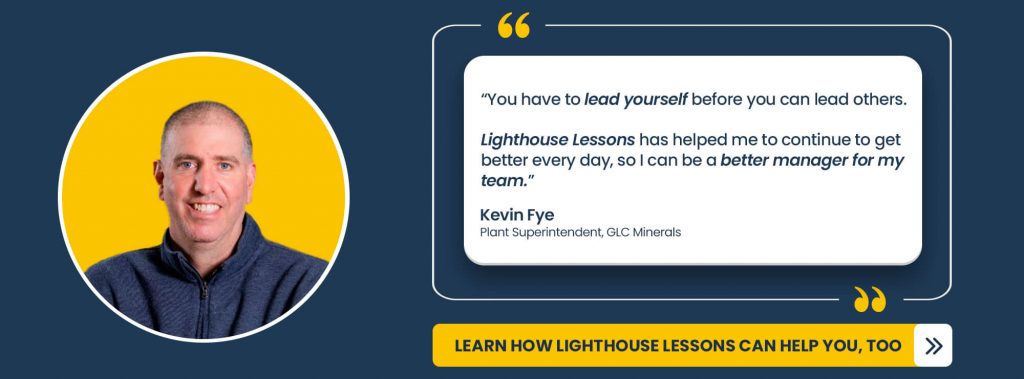"There is only one way under high heaven to get the best of an argument - and that is to avoid it." - Dale Carnegie, author How to Win Friends and Influence People

- Bruised egos of any one on the losing side
- Resentment towards you by those that did not get their way
- Observers of the argument and those on the losing side are less likely to bring up a discussion again.
When someone wins an argument, a manager loses most.
All of the side effects of someone winning an argument lead to dysfunction on your team, but the last one is where you as a manager lose most. It's setting a standard in your culture that's hard to overcome: a battle of egos is the norm. And without healthy discussion, and sometimes strong debate, you won't arrive at the best solutions nor fully engage your team.
"A hallmark of a healthy creative culture is that its people feel free to share ideas, opinions, and criticisms. Lack of candor, if unchecked ultimately leads to dysfunctional environments." - Ed Catmull, President and co-founder of Pixar.
Pixar, makers of hit after hit after hit animated feature films, has placed the value of Candor at the center of their company for exactly this reason. They define candor as:
"Candor is forthrightness or frankness - not so different from honesty, really. And yet, in common usage, the word communicates not just truth-telling but a lack of reserve...People have an easier time talking about their level of candor because they don't think they will be punished for admitting that they sometimes hold their tongues. This is essential. You cannot address the obstacles to candor until people feel free to say that they exist." - Creativity, Inc
Candor is hugely important and must be fostered to exist; it doesn't happen by accident. It's easy to make arguments uncomfortable and people to build resentment. Resentment leads to either more combative workplaces or good people shutting down entirely and no longer contributing. Everyone loses in either case, and so you must be vigilant to ensure healthy discussion, not arguments, happen on your team.
How do you turn arguments into healthy discussion?
So if you want more candor and healthy discussions on your team while avoiding the destructiveness of arguments, what do you do?
Make it about the idea, not the people involved.
Arguments are between people. Discussion and debate are about ideas. When you see an argument starting, work to pull people out of attacking each other and instead exploring the ideas on the two sides of the debate. When people remember the common goal they're working towards (like the best possible product or service the team can deliver), it's easier to want to hear alternative viewpoints.
At Pixar, they have many feedback sessions during the process of developing and making their movies. They call these sessions The Braintrust, and they have a crucial rule in the process:
"The Braintrust is fueled by the idea that every note we give is in the service of a common goal: Supporting and helping each other as we try to make better movies." - Creativity, Inc
Remembering that the goal is the same for everyone keeps things from getting personal in Braintrust meetings. Those receiving the feedback are exposed to the problems with the film and given the opportunity to determine the best way to fix the issues. It helps the people making the movie stay in control of the process, while tapping into the valued opinions of others. Great solutions then emerge over time from a variety of ideas and input.
Admit you may be wrong.
The example you set is the culture your team will have, and arguments are a crucial time to set the right example. If you're in the discussion already, admit you may be wrong, even if you're 110% sure you are right. This helps you in a number of critical ways:
- You Save Face: If you do turn out to be even partially wrong, you have saved face by already acknowledging the possibility.
- Both of You Disarm: It's easy to dig in and deny anything the other side has to say, but by admitting to possibly being wrong, you disarm the situation and show you're willing to listen.
- They Reciprocate: Now that you've admitted the possibility of being wrong, the other side has room to safely do the same, as well as hear you out on your side.
Arguments are as much about ego as facts. When you remove ego from the situation, you make it safe for people to change their minds.
As Carnegie wrote in How to Win Friends and Influence People,
"When we are wrong, we may admit it to ourselves. And if we are handled gently and tactfully, we may admit it to others and even take pride in our frankness and broad-mindedness. But not if someone else is trying to ram the unpalatable fact down our esophagus."
It feels good to "win" an argument, but the cost is too high to let that be a part of your team's culture. The real victory for your team is a culture where strong debate and discussion is productive and works towards a united goal of a great product or service. When people show humility by acknowledging they may not be correct, it becomes much easier to find a common, best solution and without bruised egos.
Use storytelling to win them over.
Sharing a ton of facts and figures may make you feel smart, but it won't always convince people to see it your way. Instead, look for ways to relay a story that brings life to the data.
Telling a story about a specific person helps us relate in something called the Identifiable Victim Effect. Put simply:
"It turns out human empathy does not scale well. We can care very deeply about one, single stranger, but that empathy wanes rapidly as the group of victims grows. Once it becomes a large number we cease caring." - Harvard Business Review Feb 2015
Instead of simply using a metric to prove your point, share a specific customer's experience related to that metric; relaying what happened to a confused customer you spoke with about a feature your designer thinks is crystal clear can help make the problem more clear and realistic to them than simply showing low repeat usage numbers.
---
You can't expect to have everyone on your team always agree. There will be disagreements and times of healthy debate. If you and your team approach are always trying to win an argument, then you all lose.
However, if you demonstrate humility by admitting you could be wrong, avoid making it personal by focusing on the ideas, and use storytelling to make your points stronger, you and your team will build a culture of productive candor to create great outcomes.
Are you growing as a leader? Are you building the skills you need?
Get better as a leader every day with our bite-size leadership training programs, Lighthouse Lessons. Purpose built for busy managers like you, they help you become a better leader by mastering the skills that bring out the best in your team. You can learn more and sign up here.





